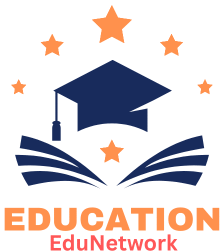Due to the rapid evolution of the education industry, consulting roles in this field are both common and highly sought for. As schools throughout the globe adapt to changing climates brought on by new technologies, diverse student needs, and policy shifts, the role of education consultants in gauging academic success and institutional effectiveness is growing in importance. From the duties of the job to where to look for openings and if you qualify, this article covers it all for an education consultant.
What Does an Education Consultant Do?
Education consultants advise individuals, groups, or institutions on how to achieve educational goals, improve academic achievement, and follow regulations. They may have quite different responsibilities depending on the circumstances. Some advise with institutions to improve their institutional strategy, teacher training, or curriculum development; others work as independent consultants and deal directly with students.
Why There Have Been More Job Openings for Education Consultants
There are a growing number of reasons why education consultants are in high demand:
-
Curriculum conformance, accreditation, and visa restrictions are becoming increasingly important concerns for educational institutions in light of the increasing number of students opting to pursue higher education overseas.
-
New technology: As more and more educational technology (EdTech) is being used, schools are seeking expert advice on how to choose and implement the best digital platforms.
-
Due to the frequent updates to assessment standards and education policy, there is a great need for professionals who can assist schools in navigating these changes in curriculum and policy.
-
Student and parent expectations: There is a growing trend of families seeking expert guidance on their children’s education as the rivalry for college spots and jobs heats up.
The United States, the United Kingdom, Canada, Australia, and the United Arab Emirates are among the many countries where education consultants are finding a great deal of demand as a result of these changes.
Principal Responsibilities of an Educational Consultant
If you are interested in working as an education consultant, these are some of the usual duties you could encounter:
-
Helping students figure out how to apply to college, set goals for their academic careers, and more.
-
Providing support to organizations in the areas of curriculum development and staff development.
-
Surveying academic literature in order to suggest improvements.
-
Facilitating educational programs for faculty and school leaders.
-
Evaluating instructional materials and tools.
-
Aiding educational institutions in meeting policy requirements and earning accreditation.
-
Generating fresh approaches to teaching and learning.
This role might be full-time, part-time, or contract-based, and it could include travel. This is especially true for consultants who work on a district, national, or global scale.
Career Paths Offered by Education Consultants
To locate the most suitable education consultant jobs for your skills and experience, familiarize yourself with the different subfields within the field:
-
Academic advisors: help students choose study techniques, universities, and classes.
-
Consultants in the field of higher education: focus on college admissions and scholarships.
-
Assistance in selecting a school, making arrangements for study abroad, and securing necessary visas is provided by international education consultants.
-
Working in tandem with school systems or individual schools, curriculum consultants may enhance instructional design.
-
Assist students who have difficulties in the classroom due to behavioral or academic issues as special education consultants.
-
Consultants in technology: propose and implement technological tools for teaching and learning.
-
Selected advisors: Assist students and job-seekers in making informed decisions about their educational and career paths.
Since there are specific requirements and market demand in each of these areas, it is crucial to be aware of the differences in order to establish a career path.
Skills and Qualifications Necessary
Most education consultant roles need a mix of academic credentials, work experience, and interpersonal abilities from candidates.
-
Experience and teaching: A bachelor’s degree in teaching, psychology, or a related field is required.
-
It is preferred that candidates have a master’s degree or higher in counseling, educational leadership, or a closely connected field.
-
It is generally required to have prior experience in education, either as a teacher or in an administrative role.
-
Familiarity with regional equivalents of standardized tests like the GRE, SAT, ACT, IELTS, and others.
-
Strong verbal, written, and interpersonal communication abilities.
-
Superb analytical and organizing skills.
-
Expertise with educational technology (ET) resources.
-
Knowledge of current educational trends and methods.
-
Cultural sensitivity, especially for consulting roles with clients in other countries.
-
Certifications, such as being a member of the IECA or a Certified Educational Planner (CEP), may further boost credibility.
Education Consultant Job Opportunities: Where to Find Them
There are a variety of resources available to help you find employment opportunities for education consultants:
-
Online Job Boards: LinkedIn, Job Board, Monster, JustHired, Indian Job Market, Find somewhere in Australia.
-
Sector-Specific Platforms: HigherEdJobs, The Times Educational Supplement (TES), Education Week, A Review of Scholarly Writings, Association for School Counselors at the National Level (ASCA).
-
Recruitment Agencies: Agencies that specialize in recruiting instructors include Teach Away, Eteach, and GEMS Education Careers.
Think about these kinds of platforms if you’re looking for contract work or part-time work as an education consultant:
-
Upwork: Working as an autonomous contractor.
-
Advisory services in niche areas may be found on Fiverr.
-
Networking: Opportunities may present themselves unexpectedly when you join professional organizations, participate in webinars, and go to educational conferences.
SEO Tips for People Seeking Employment On the Hunt for “Vacancies for Education Consultants”
When looking for a job, it’s smart to apply search engine optimization (SEO) strategies in the same way that employers publish job vacancies.
Use Appropriate Keywords:
When looking for work or setting up alerts on job boards, use variations of your target keyword.
-
A career as an educational consultant
-
Careers as education consultants
-
Advising roles for international students
-
Job openings for educational advisors
-
Educational advisor positions available
Maximize the Impact of Your Resume:
Your LinkedIn profile and résumé should both include keyword-rich phrases:
-
“Education consultant with 5+ years of experience in college admissions”
-
“Expert in curriculum development and academic counseling”
-
“Specialist in international student guidance”
Get your name out there by launching a blog, contributing to LinkedIn, or even a YouTube channel showcasing your skills. Your profile’s credibility and exposure will increase, which might make you more appealing to recruiters.
Salary Anticipations
Education consultant salaries may vary widely depending on factors such as region, organization type, and degree of expertise.
-
Pay range: $40,000 to $60,000 per year (US)
-
The middle tier earns an annual salary of $60,000 to $90,000.
-
The yearly salary range for senior consultants is $90,000 to $120,000.
-
Depending on the client and the freelancer’s area of expertise, the hourly rate might range from $30 to $100.
-
In countries like the UAE, education consultants may be eligible for housing stipends, travel reimbursements, and even tax-free income.
Advancement Opportunities in the Field
A career as an education consultant is very flexible. As their expertise grows, consultants may be able to:
-
Launch their own advisory firm.
-
Direct your efforts towards in-demand areas like special education or educational technology.
-
Take up roles in educational policy-making or government-affiliated organizations.
-
Get into the teaching profession by taking up writing, public speaking, or training.
The education sector is expected to grow substantially, particularly in developing countries and via online learning platforms, which means that the demand for education consultants is likely to outstrip supply.
Last Thoughts
Those who are enthusiastic about making a difference in students’ lives via education and who thrive in advising roles may find great satisfaction in exploring job opportunities as education consultants. This role is in great demand in both the public and commercial sectors due to the unique combination of communication, education, and strategy it entails.
Being well-informed on the position’s requirements, current events in your sector, and search engine optimization best practices will help you stand out in a competitive yet growing employment market. Whether you’re advising schools on digital resources, helping kids choose the right college, or developing innovative lesson plans, your impact as an education consultant might be substantial and measurable.
